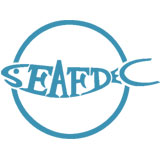Influence of pyrite oxidation and soil acidification on some essential nutrient elements.
Share
Abstract
Influence of soil acidification on some essential nutrient elements was observed experimentally during periodic leaching at 10-day intervals of pyritic soil materials. Pyritic soil in glass columns saturated with distilled water was treated under waterlogged or submerged and drained conditions. Waterlogged was inundated and had overlying water of 2-cm depth above soil surface. Extremely acidic soil conditions, caused mainly by oxidation of pyrite (FeS2), led to other serious problems. Results showed that strong acidification of soils influenced the solubility and availability of some nutrients. The loss of calcium (Ca), magnesium (Mg), zinc (Zn), and copper (Cu) was enhanced by acidification. Intense acid conditions also dissolved manganese (Mn), high amounts of which would lead to toxicity problems in plants and animals. As oxidation progressed, soil acidification increased and depressed availability of phosphorous (P), thereby, leading to the deficiency of this nutrient. Sodium (Na) and Chlorine (Cl) were leached out rapidly in both treatments regardless of soil acidification. The common problems associated with acid soil formation from oxidation of pyrite are fish mortalities and very poor response of the soil to phosphorous fertilization. For idle land or areas abundant in pyritic materials, soil acidification can be avoided by inundation with water to a depth of 2–3 cm, rather than draining and exposure, which lead to the formation of acid sulfate soil. Periodic leaching was found effective in reducing soil acidity although some essential nutrients were also removed. Therefore, fertilization during amendments is found to be of necessity.
Suggested Citation
Golez, N. V., & Kyuma, K. (1997). Influence of pyrite oxidation and soil acidification on some essential nutrient elements. Aquacultural Engineering , 16(1-2), 107-124. https://doi.org/10.1016/S0144-8609(96)01008-4
Subject
Collections
- AQD Journal Articles [1248]


